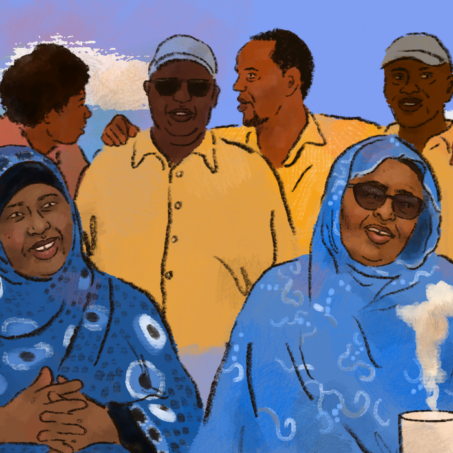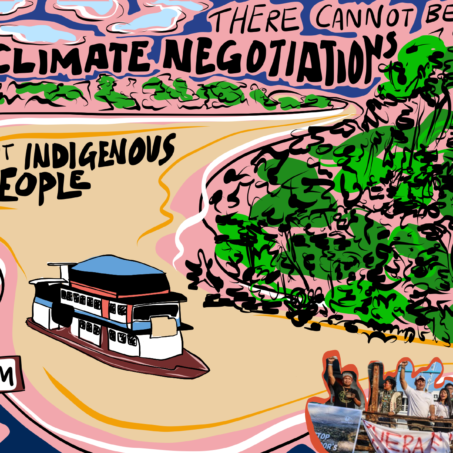COP27 is just around the corner, marking the end of the UK’s COP26 presidency, during which the UK declared themselves “world leaders” on climate change.
Last year’s manifestation of the annual climate conference led to hundreds of countries pledging to tackle fossil fuels, deforestation and methane emissions (known as the Glasgow Climate Pact), to which the UK was party.
However, a string of UK Prime Ministers (who are at this point operating on a one-in-one-out basis) have have managed to not only tank the British economy, with the pound hitting an all-time low against the dollar, but at the time of writing they have also lifted the fracking ban and opened a new licensing round for oil and gas exploration in the North Sea, offering potentially more than 100 licences to be awarded.
For many of us, we’re left despairing over whether the economy and climate will survive this current iteration of Tory non-leadership.
What is Rosebank?
The Tory government is currently hell-bent on approving the biggest undeveloped oil field, Rosebank.
It’s owned by Norwegian oil giant Equinor and may be approved by the end of October 2022. At almost 500 million barrels of oil, Rosebank is almost three times the size of Cambo, Shell’s oil field which climate activists successfully paused last year.
80% of Rosebank’s oil reserves are likely to be exported, while the UK public will carry almost all the financial costs of developing Rosebank, giving over £500 million as a result of the Windfall Tax introduced by the UK government earlier this year.
Fossil fuels will only make our energy system more vulnerable
The government and fossil fuel industry continue to sell the fairytale that more oil and gas extraction will lower our energy bills and increase energy security, despite renewables being up to nine times cheaper than fossil fuels.
In reality, approving new oil fields only makes us more dependent on expensive fossil fuels for longer while lining the pockets of rich CEOs.
Approving licences for the further exploration and extraction of fossil fuels is a huge climate and environmental justice issue. Burning more fossil fuels will only serve to push us further past safe climate limits and scientists have been saying for years that we can’t have any more new oil and gas if we want to have liveable futures.
It also goes without saying that the climate impacts of Rosebank and other oil fields will be felt by the most historically marginalised: BIPOC, the working class and those in the Global South.
The CO2 emissions from Rosebank alone would be equal to the annual emissions of the 28 lowest-income countries in the world, including Uganda, Ethiopia and Mozambique and the climate pollution from Rosebank would produce more than 700 million people in the Global South in a year. These are the same countries – and people – who have historically contributed the least to the climate crisis, yet are experiencing some of the worse impacts of our rapidly warming planet.
Climate catastrophe is already happening
At 1.2C of warming, we’ve already seen record-breaking droughts across the world, worsening wildfires, hurricanes, typhoons, devastating floods and more in the last few months alone.
Since 1750, the UK has contributed hugely to greenhouse emissions due to the Industrial Revolution which was made possible by the colonisation of many Global South countries. The UK extracted and exploited the resources and labour of these countries for centuries, and in doing so, they left these communities both more vulnerable to climate change and less equipped to mitigate its impact.
The UK also continues to contribute to carbon colonialism, by exporting its carbon footprint to countries where it’s cheaper to buy and sell raw materials and exploit labour, resulting in nearly half of the UK’s carbon footprint coming from abroad in 2020.
While the UK has made huge strides by decreasing coal production by around 90% and power generation from renewable energy being greater than fossil fuels since 2020, it was the fifth-largest producer of CO2 emissions in the world between 1975 and 2020 and it remains one of the most profitable countries in the world for new oil and gas, with its generous tax regime which sees companies like BP and Shell getting more tax returns than they paid in the first place.
The fossil fuel industry causes a whole host of environmental and human rights injustices both in the UK and around the world.
Black, Asian, other minority ethnic groups and poor people in the UK suffer the worst impacts of climate change as they tend to live in industrial areas with high levels of pollution and few green spaces. This has been routinely linked to issues with childhood development, physical and mental health.
Although many oil and gas companies now claim to make their operations “net zero”, most of them ignore the actual burning of fossil fuels, which contribute 90% of emissions from fossil fuels. The UK government seems to have capitulated to the industry, with its lack of meaningful climate action and active encouragement of new destructive projects.
The only thing missing is political will
The UK must use the wealth that it gained largely as a result of colonialism and the exploitation of BIPOC and working class peoples, to support a fair and rapid transition away from fossil fuels both at home and overseas.

Join our mailing list
Sign up for shado's picks of the week! Dropping in your inbox every Friday, we share news from inside shado + out, plus job listings, event recommendations and actions ✊
Sign up for shado's picks of the week! Dropping in your inbox every Friday, we share news from inside shado + out, plus job listings, event recommendations and actions ✊
In the run-up to COP27, there have been increasingly loud calls for loss and damage payments to compensate countries most affected by climate impacts. So far, Scotland is the only UK nation to have committed to such compensation, with Denmark recently becoming the first central government to announce loss and damage payments.
For a safe climate, affordable energy, and a liveable future we must stop expanding oil and gas production and instead rapidly transition to renewable energy, whilst supporting Global South countries in their fight against the climate crisis. We must stop Rosebank.
The solutions are abundantly clear and, most importantly, already available – we need ambitious investments in renewable energy to increase energy security and reduce our reliance on dirty gas from authoritarian regimes.
While new oil and gas fields often take decades to start producing, there is potential to build hundreds of solar and wind projects in less than five years. Community energy is a growing trend and allows localities to move towards self-sufficiency whilst protecting from energy price shocks.
Paired with a mass home insulation rollout, which will serve to significantly reduce energy consumption, the UK could be well placed to become a leader in the shift towards a more sustainable future, but only if our leaders start putting their money where their mouth is.
Join the fight against Rosebank
The biggest oil field will require the biggest fight, and collective action is key. Already we’re seeing lots of groups taking action against Rosebank: with Greenpeace disrupting former PM Liz Truss’ speech, Fossil Free London blocking the Oil & Money Conference, and the Stop Rosebank coalition reclaiming the TED stage from platforming fossil fuel CEOs. We can use this new government’s instability to force a U-turn on Rosebank too. Together, we can stop Rosebank – but we need your help.
What can you do?
- Sign the petition here.
- Read Burnt by Chris Saltmarsh.
- Turn the pressure up on your MP to #StopRosebank and all new oil and gas fields. Use these MP Action Tools to tell your MP that the time to pick a side is long overdue: us or oil & gas giants.
- Make a #StopRosebank sign and upload a photo on social media, using the hashtag #StopRosebank and tagging @StopCambo. Click here for our suggestions.
- Join our next Welcome Call or set up your own local action.
- Follow and amplify @StopCambo on Facebook, Instagram and Twitter.














